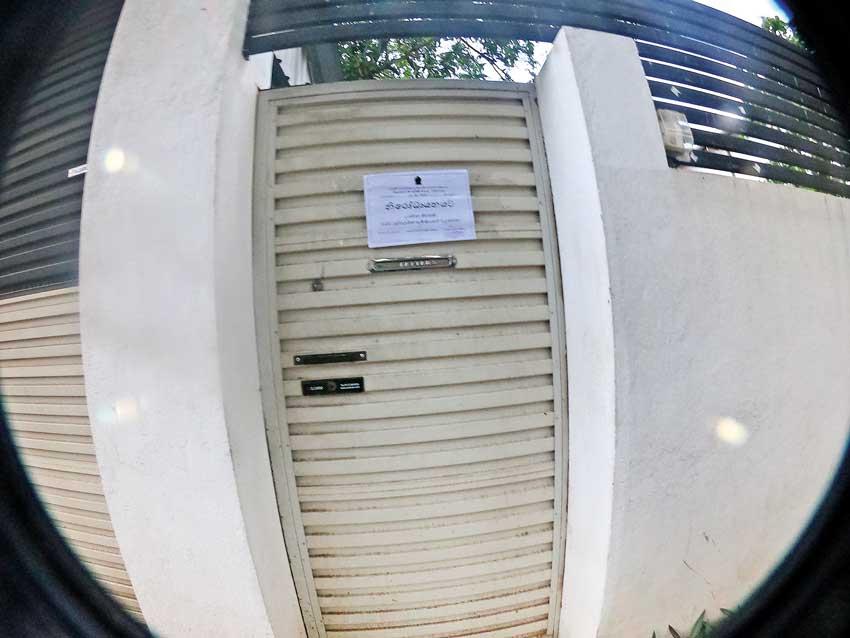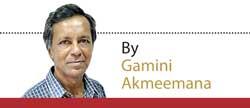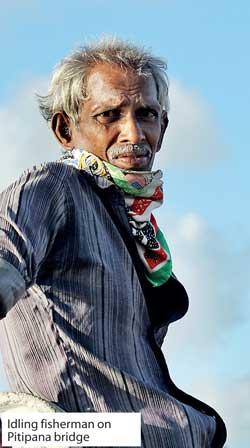17 Oct 2020 - {{hitsCtrl.values.hits}}

By the time this article appears in print, these statistics would be out of date. It’s the fear of becoming a statistic that has given many people an acute sense of social responsibility now, a vital change given that very few bothered to wear masks in buses barely two weeks ago though no one had declared the country pandemic free
 It just didn’t seem right. After the initial scare in Mid-March, after more than two months of lockdown, the pre-March blessed state of being, of being spared the ravages of the pandemic terrorising the rest of the world, seemed to be the norm. The infections happened neatly in clusters, were quickly contained and brought under control.
It just didn’t seem right. After the initial scare in Mid-March, after more than two months of lockdown, the pre-March blessed state of being, of being spared the ravages of the pandemic terrorising the rest of the world, seemed to be the norm. The infections happened neatly in clusters, were quickly contained and brought under control.
Politicians showed little or no restraints at public events, and the general public followed suit. The general elections were finally held in August without a single infection being reported, followed by the Colombo international book fair.

Now, two weeks after that mass gathering, one infected case from it has been reported. But this has gone largely unnoticed in the new panic, already stretching into weeks – the Minuwangoda cluster which resulted in more than 1000 infected cases in a few days, putting several districts and key towns under lockdown. It was reported that Covid 19 has spread to 21 districts, with the total number of cases islandwide now going past 5000.
By the time this article appears in print, these statistics would be out of date. It’s the fear of becoming a statistic that has given many people an acute sense of social responsibility now, a vital change given that very few bothered to wear masks in buses barely two weeks ago though no one had declared the country pandemic free.
If the new outbreak is brought under control, it will be due to this new sense of urgency more than any official lockdowns. But social responsibility doesn’t mean locking yourself in at home until the world outside is officially declared safe. Work from home is not an option for a good part of Sri Lankans. Even those who have that privilege now prefer to go to work because working from home means more work for less pay, with boredom as a bonus.
Social responsibility is wearing a mask when you go out, keeping your social distance, washing your face and hands often, and avoiding unnecessary travel and contact. In my case, when I decided to travel to Negombo on Tuesday, it was for a number of reasons, and after much soul-searching.
As a journalist, I wanted to see what was happening outside. A3 highway was under lockdown from Katana to Seeduwa (extended up to Katunayake the day after), and Katana is just 17 km from home. I had friends in Negombo having a hard time, and I hadn’t been there since June. I need to get my scooter repaired and serviced, and my trusted mechanic lives in Negombo.
I called him on Monday and fixed an appointment for Tuesday. I could have gone to a garage in Colombo, but infections were reported close to my own neighbourhood. Colombo didn’t seem any safer than Negombo. In any case, I wanted to see what life in the locked down areas were like.
Tuesday morning, however, when I phoned, he was having mixed feelings. A shop at the junction was closed, he was worried. But his garage was open and he was working. I said I was going to Negombo in any case, and he agreed to see me.
Along the road, it looked as if the lockdown was extending even beyond Katunayake, not officially under lockdown on Tuesday. Shops were shuttered up and there were very few pedestrians. Life picked up again as I neared Negombo, though it was hardly the crowds one saw on a normal weekday morning.
But lockdown in the towns of Katana and Ja- Ela looked less sinister than what I remember of Colombo during that terrible time from late March to May. I thought entry to Katana would be through a strict police barrier, but there was none. I passed one between Katana and Ja Ela, but it looked very relaxed. All shops were shuttered up in the two towns and in between (except for some fuel stations) with an occasional pedestrian or cyclist. There was plenty of motor traffic along the A3, as there was no restriction for that.
Still, it felt uncanny riding through these ghost towns. You feel terribly isolated and vulnerable. The pleasure I felt in seeing open shops and people in the streets as I rode to the garage in the ‘Akkara panaha’ area of Negombo did not last, however. The garage was cordoned off with a length of wire. When I asked why, my mechanic Ranjan’s wife pointed to the house opposite. It was sealed and its occupants were under quarantine.
None of them were infected. But one suspected case had visited their shop at the junction. The pharmacy where Ranjan’s daughter worked too, was about to close for the same reason.
Just then, a man on a motorbike stopped. He was one of Ranjan’s neighbours. He said a girl from that area has been taken into quarantine. That was the decider for the day. My mechanic quickly attended to my machine and then called it a day. He, his wife and two sons were going home. They would decide later when it would be safe to re-open.
I proceeded to Pitipana, where my friend lived, along St. Joseph’s Street. Normally a beehive on a weekday, it looked mostly empty. The fishing port of Pitipana looked more lively, but the bridge famous for its fishermen all day long was deserted. So was the fish market.
My friend, who had lost his livelihood due to Covid 19 (the entire family lives now on the son’s salary) refuses to be bowed down by circumstances. He said his brother, living in France and now a French citizen, was facing hard times, too. But there was a revival of nature. This is the other side of Covid 19. There was more marine life in the lagoon. He spoke in the tone of a man believes that he can survive the pandemic, come what may.
This is just what I needed. Not false self confidence, not the Donald Trump sort of bragging and hubris, but a stoical appraisal of the present and the ability to believe that, despite everything, there will be a future for us after all.
30 Nov 2024 2 hours ago
30 Nov 2024 4 hours ago
30 Nov 2024 4 hours ago
30 Nov 2024 6 hours ago
30 Nov 2024 9 hours ago